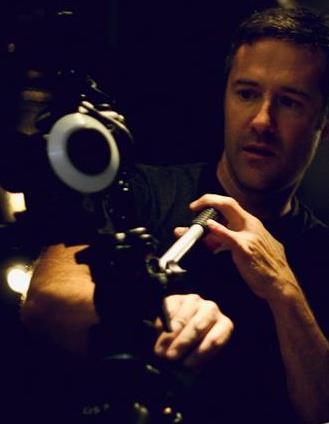There are very few jobs in the world where, when you walk into a room, anyone can say they do
without some sort of validation. If you walk into a party, and someone asks if you are a doctor or a
police officer or a car mechanic, these titles will instigate follow up questions from most conversational
people that will dictate whether or not you are who you say you are. However, being a director of film
work is not such a title. Come to think of it, most artistic titles might be this way (insert writer, potter,
painter in to the response “I am a __________”).
When I am in conversations with people, and I am asked what I do, if I say “I am a director of films,”
I usually get several types of responses. Most people don’t know what to make of it, first off. Have
I made something they have seen? Have I heard of this person? There is the reaction of “I have this
idea…” There is the follow up, “What do you do, actually.” Here is the thing with these reactions, and
all the other reactions to what I do – most people have no frame of reference.
Most likely, you haven’t heard of me at all. In fact, in the grand scheme of the world, you will never
know 98% of the directors. Spielbergs and Scorseses are rare. Very rare. Between all the commercial
and all the films and TV shows you will never see, most directors have a job that brings about no fame.
You will probably never hear about me in an awards show. So, please, if we meet, don”t worry about
scanning your lexicon of titles in your memory. I haven’t done any of them.
I am amazed, though, as to how many people pitch me. You see, I am in the business of art. The first
part means there is an exchange of some kind that is, hopefully, keeping the rent paid. It’s not an easy
job, and it take more than a clever idea. Ideas are easy, but that doesn’t make them good.
What do I do in my job? There is an amazing amount of orchestration that goes into making a film,
or a TV show, or a commercial. It is a vast area of nebulous goals, rotating budgets, lost locations,
confusing ideas and gut wrenching decisions. However, it is a job that, when you walk into a party, you
can say “I am a director” and probably get away with it. I could never say I was a doctor, because you
would want me to diagnose something. If I am a director, you will most likely want to tell me how you
would make “The Hobbit” a better movie.
The great experiment, for me, is how I justify my existence in a place that is so out of place? Directing
is not an easy job. Getting cats to march in a straight line is, sometimes, an easier concept to grasp than
making a film from start to finish. Like the sentiment goes, if it was easy, everyone would do it. It’s
true. Many have tried, most have not succeeded.
That is why FiLMLaB was such a great exercise and experience for me. With all the things that film is,
trust is a huge part of what happens. There is a belief that this person will get these people to all make
this thing that has people laughing or crying or feeling like they are in the middle of the action. That
trust is powerful. It drives you to herd those cats, into a line, and make them dance at the expense of
your sleep and your sanity.
FiLMLaB is an amazing experience. Every chance I get to direct is a chance to prove who I am as an
artist, a leader, and a business person. My job is all about proving yourself. I would imagine that if I
were a Spielberg or a Scorcese, I wouldn’t have to prove myself so much. Then again, if I didn’t have to
be striving like that, I may not like what I do so much.


